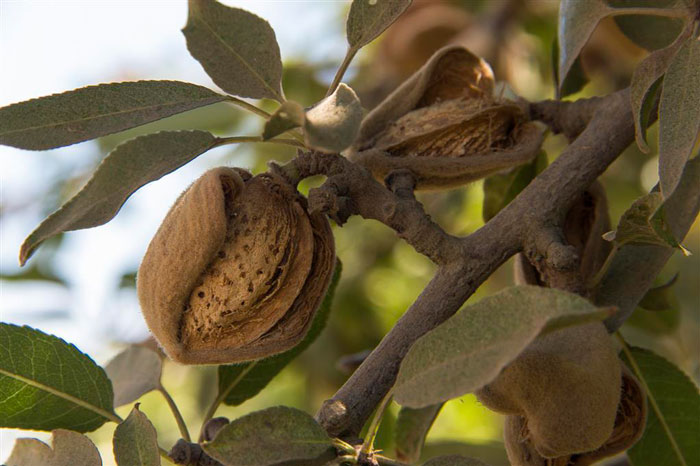January 20, 2016

The U.S. Department of Agriculture has announced funds totaling more than $2.8 million have been allocated for a dozen projects in California related to tree nut crops, including almonds, pistachios, walnuts, and pecans.
The money is part of the 2015 Specialty Crop Block Grant Program in which California received $19.7 million out of approximately $63 million awarded nationwide for a wide range of research efforts.
The program provides grants to state departments of agriculture to carry out projects that enhance the competitiveness of specialty crops, defined as fruits, vegetables, tree nuts, dried fruits, horticulture, and nursery crops.
The nut-related projects, costs, and administrators include:
Forecasting of pistachio crop yield - $131,948
California State University, Fresno
Pistachio producers and related industries want accurate and timely early season forecasts of crop yields for marketing purposes and export decisions. These forecasts are particularly important since pistachio, an alternate bearing crop, has potentially large annual yield fluctuations.
This proposal seeks to develop prediction models for major pistachio regions.
Improving post-storage walnut quality by understanding water activity relationships - $229,194
Regents, University of California, Davis
The objective is to determine the relationships between water activity and the rate of deterioration of walnuts in storage.
Walnuts will be stored in-shell and as kernels at 41 degrees, 59 degrees, or 77 degrees (Fahrenheit) with varying degrees of relative humidity. The quality of the four main California varieties from two different harvest dates will be determined at harvest and during storage. After 6-12 months of storage, a trained taste panel will evaluate sensory parameters.
Promoting California pistachios and dried plums (prunes) as ingredients in China - $309,403
American Pistachio Growers
The American Pistachio Growers and the California Dried Plum Board propose hosting a series of culinary and baking seminars to promote pistachios and dried plums as ingredients to the hotel industry in China and Hong Kong. It will target luxury hotels’ executive chefs, pastry chefs, and bakers from large industrial bakeries.
Nut safety school - $200,979
AgSafe
AgSafe and project cooperators will employ a Nut Safety School, a three-part training series in English and Spanish, to address worker safety issues during almond, walnut, pecan, and pistachio pruning, harvest, and year-round operations.
The importance of bees - $65,900
Manteca Unified School District
The Manteca Unified School District operates a 40-acre educational farm that produces specialty crops. The district wants to expand this training to include apiculture at a time when many beekeepers are getting older.
The district will hire and train 10 high school students and one college student for two years in the practices of beekeeping, while also teaching the importance of bees and their role in specialty crops.
Food safe integrated nutrient management of organic matter amendments in almonds - $292,349
Regents of UC, Davis
This project aims to test how food safe use of organic matter amendments integrated with conventional fertilizer will impact tree nutrition and soil health by measuring tree growth, leaf nutrient status, soil nutrient cycling, and soil carbon. It will verify food safe practices by screening for human pathogens on fruit at harvest and monitor grower perceptions.
Improving salinity management strategies for almonds grown under micro-irrigation - $429,590
Regents of UC, Davis
Increased use of saline irrigation water poses a severe threat to almonds and yet strategies for management of salinity are inadequate. Micro irrigation is the predominant irrigation method in use and imposes unique challenges for salinity management.
This project aims to develop salinity management strategies optimized for the principal micro-irrigated almond rootstocks and cultivars.
Incentives to reduce greenhouse gas emissions and nitrate leaching from almond orchards - $261,812
Almond Board of California
The Almond Board of California has been leading efforts to understand the greenhouse gas and water quality impacts of different almond cultivation practices. The proposed project would quantify greenhouse gas emissions and water quality benefits from modified growing practices and carry out cost-benefit analyses for implementing such practices.
Development of a rapid real time polymerase chain reaction assay to detect nematode pests of pistachios, walnuts, and almonds - $220,083
Regents of UC, Davis
Nematodes reduce vigor and yield in tree nuts, causing 15-20 percent damage on average, but sometimes as much as 50 percent. By improving growers' capacity to detect pests including root knot, lesion, and ring nematodes in tree crops, better pre- and post-plant management decisions can be made.
Development of an effective attractant for control of the leaffooted plant bug in pomegranates, pistachios and almonds - $114,672
USDA Agricultural Research Service
In 2014, California pomegranate growers reported a large increase in leaffooted plant bugs, which inflict serious damage to pomegranates, almonds, and pistachios, and vector pathogenic microbes into pomegranates resulting in internal decay of otherwise intact fruit.
This project will formulate a blend of pomegranate-based volatiles. An effective lure for the pest would decrease damage to pomegranates and alleviate the pest’s migration into nut crops.
Develop effective fumigation methods to control parasitic nematodes in orchard soil for successful replanting - $442,028
USDA-ARS
Many perennial crops (stone fruits, nuts, and grapes) in California rely heavily on pre-plant soil fumigation to control plant parasitic nematodes and establish healthy and productive orchards. This project will determine how the application of fumigants can be improved.
Determining the effects of limited and poor quality irrigation water on weed composition and control in California tree nut crops - $148,902
Regents, UC, Davis
This project will describe how changes in water volume, salt contamination, and pH are affecting weed composition and herbicide performance. Weed control programs designed for water-limited systems will help growers maximize water use efficiency and limit the application of unnecessary pesticides.
You May Also Like




